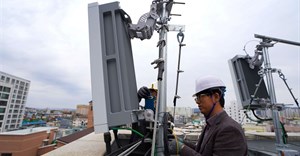The South African energy crisis and the need to manage supply and demand has motivated the state-owned power utility, Eskom, to establish and implement aggressive goals and targets to support consumers in the drive towards reduced energy consumption.
This past week the national grid again edged closer to overcapacity. Eskom cautioned all consumers, including those in commerce and industry, that power supply would be tight owing to outages on some of its units.
EES, an ISO 9001:2008-certified company that provides management, engineering and auditing services, encourages commerce and industry to consider using ICT to reduce energy consumption. The company believes that instead of pointing fingers at Eskom, each and every player in the energy sector should make their own contribution to overcoming the energy challenges that South Africa faces.
"Support and implementation of appropriate policies that aim to reduce energy consumption are key contributors not only to ensuring energy savings and improving security of supply, but also to achieving sustainable development in the country going forward," said Bradley Hemphill, MD of EES.
The implementation of ICT in commerce
Hemphill advocates the implementation of ICT in commerce, as it significantly reduces energy consumption. "'Intelligent' use of ICT can bring direct efficiency gains through measurement, monitoring, management and control. Across-the-board implementation of ICT in the form of an intelligent infrastructure makes facility management more effective, results in energy savings and reduces the pressure the national power grid is under."
By means of sensors and other devices, ICT gathers data that can be converted through energy business intelligence applications into real-time knowledge. This enables energy savings to be measured in a tangible way and aids decision making regarding energy management and energy reduction. The ICT solutions that are deployed in buildings are part of the Building Management System (BMS).
The evaluation and selection of different intelligent building options, which takes place right from the initial design, should focus on what is suitable for each individual building. "These options should take into account the interoperability of the technology and the extent to which it can be applied to multiple purposes to optimise energy reduction."
The human factor
Understanding the human factor is also essential in designing and implementing energy-efficiency results. "Close user engagement and collaboration with all project partners throughout the entire process of design and implementation of energy-efficiency solutions is essential," explained Hemphill.
Energy authorities require the knowledge and skills concerning how ICT-based energy solutions work and where they have been successfully implemented. An ICT or BMS engineer conversant with the technology required for smart building, and with a track record of working on such projects, should be appointed to project manage and advise on the implementation of intelligent infrastructure.
From there on out all energy industry players should communicate and learn from each other to move faster and avoid unnecessary costs and errors - the goal being significant reduction in energy consumption for the entire industry.

















